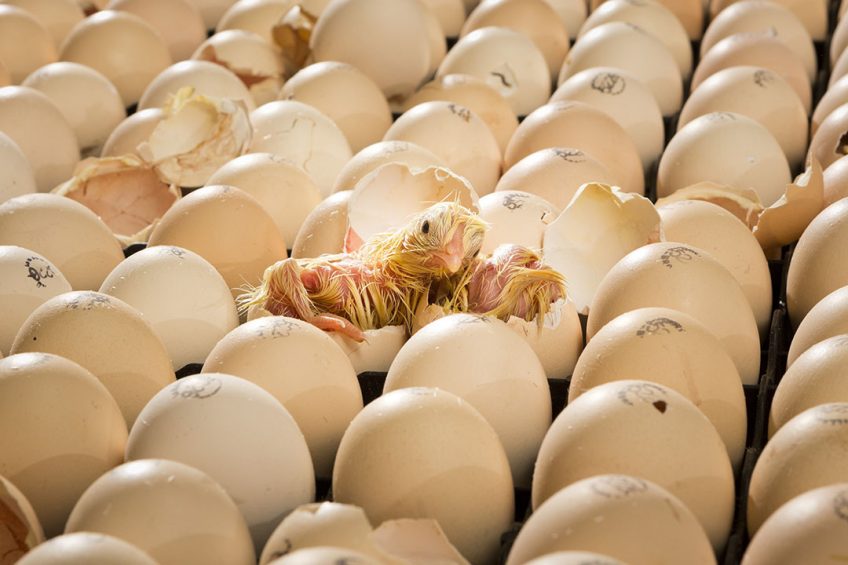Uzbekistan ups production of hatching eggs

The Uzbek poultry company Navobod Naslli Parranda has put the famous Tashkent poultry farm back into operation to meet the growing demand of hatching eggs. Already, the Tashkent poultry farm is supplying 20% of hatching eggs in Uzbekistan, owner Saidov said.
The facility was built as a poultry farm in 1967 and stood completely abandoned for a number of years, according to Saidov. “Last year, we acquired all 50 hectares of the poultry farm.” Navobod Naslli Parranda has already rebuilt 45 production houses, installing the most modern imported equipment, including feed distribution unit from VDL, egg sorting complex Sanovo, both from the Netherlands. The company has also imported Ross-308 breeding flock from Hungary. “In the first quarter of 2021, five more production houses will be build. The number of parent stock will grow to 300,000 birds, so we will be able to produce 40 million hatching eggs per year,” Saidov said. Navobod Naslli Parranda has also begun exporting hatching eggs to some former Soviet republics, including Tajikistan, Kazakhstan, and Kyrgyzstan. Just recently, the company has also started selling hatching eggs to Afghanistan.
According to Saidov, with this project his country is less reliant on imported hatching eggs, which previously came almost entirely from Turkey. In 2019, the Uzbek government embarked on a new programme for the industrial development, under which the authorities abolished import duties on layers, hatching eggs, all equipment for poultry farms, feed and feed additives by November 1, 2021. The government-run Fund for Reconstruction and Development of Uzbekistan also allocated $ 50 million to support poultry farming in Uzbekistan through soft loans.
Developing industry
In the past few years, the Uzbek government has been putting a lot of effort to develop domestic poultry production. The country’s poultry stock increased from 48 million heads in 2012 to 66 million birds in 2019. To this background, the average annual consumption of chicken nearly quadrupled from 2.4 kg per person in 2017 to 9 to 10 kg per person in 2019.
In 2020, Uzbekistan adopted a programme trying to get small scale farmers interested in rearing chickens as a way to combat poverty in rural areas. The Uzbek President Sjavkat Mirzijojev ordered the distribution of 50,000 live birds among the population to mitigate the negative impact the Covid-19 pandemic has had on Uzbekistan’s poorer citizens. The Uzbek government, however, is not disclosing the poultry industry’s production performance and to what extent has it been impacted by the Covid-19 pandemic.












